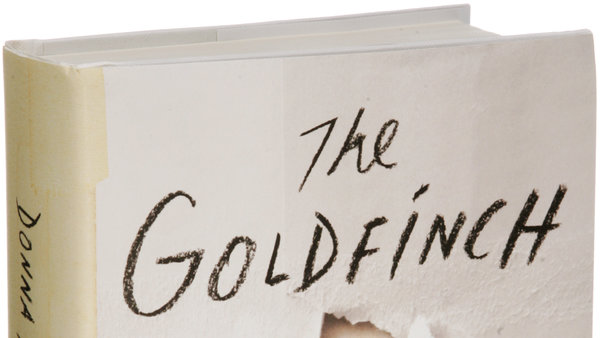Every review I’ve read of The Goldfinch has compared Donna Tartt’s sweeping 700 page novel to Dickens – the classic author paid by the word.
I won’t be any different.
If you don’t like Dickens, this book is not for you. If you enjoy fast-paced plots that distract you from daily life, this book is not for you. If you like uplifting stories awash with positivity, I repeat – this book is NOT for you.
However.
If you love language, if you love sprawling stories that take you on a tour through every major human emotion, if you love complex plots that leave you guessing or even frustrated, then by all means pick up The Goldfinch.
The book is narrated by Theo Decker, who uses a rock bottom moment in his late 20s, to recount the story of his life and how it was turned upside down by the death of his mother when he was only 13. The life of Theo Decker is hard and complicated – often made more so by Theo himself. In particular, Theo examines his decisions surrounding a priceless piece of art that comes into his possession the day his mother is killed.
“The painting had made me feel less mortal, less ordinary. It was support and vindication; it was sustenance and sum. It was the keystone that had held the whole cathedral up. ”
Tartt not only paints a vivid portrait of Theo but fills the novel with quirky, deeply-flawed but engaging characters. From Theo’s best friend Boris, a Ukrainian transfer student with an abusive father and passion for life, to Mrs. Barbour, the society queen and mother of a friend who takes Theo in for several months after his mother’s death, the people who fill Theo's life are enthralling.
Her incredibly detailed characters are not the only reason Tartt won the 2013 Pulitzer for fiction. This woman can write sentences that will take your breath away. I found Tartt’s descriptions of Theo’s grief and loneliness incredibly affecting, but it was her use of detail in illuminating the character’s personalities and histories that was particularly impressive.
“But sometimes, unexpectedly, grief pounded over me in waves that left me gasping; and when the waves washed back, I found myself looking out over a brackish wreck which was illumined in a light so lucid, so heartsick and empty, that I could hardly remember that the world had ever been anything but dead.”
While I found the book as a whole a wonderful read, I wasn’t passionate about the novel until the final soliloquy. The final pages are filled with Theo’s thoughts on themes that had filled the entire book – thoughts on the random catastrophe that is life, thoughts on the ability or inability to overcome one’s own nature, thoughts on the role art plays in both the sorrow and joy of life.
I absolutely loved the ending of this book. While there were several definite endings to the plot, there were no grand conclusions drawn by Tartt on the essential goodness of human nature. She left no neat answers to the hard questions Theo struggled with throughout the novel.
“A great sorrow, and one that I am only beginning to understand: we don’t get to choose our own hearts. We can’t make ourselves want what’s good for us or what’s good for other people. We don’t get to choose the people we are.”
After all, whether you’re Charles Dickens or Donna Tartt, you don’t need 700 pages to illustrate anything but complexity.
Luck for me, I enjoy complexity (in my reading material anyway). If you do too, then I highly The Goldfinch.







